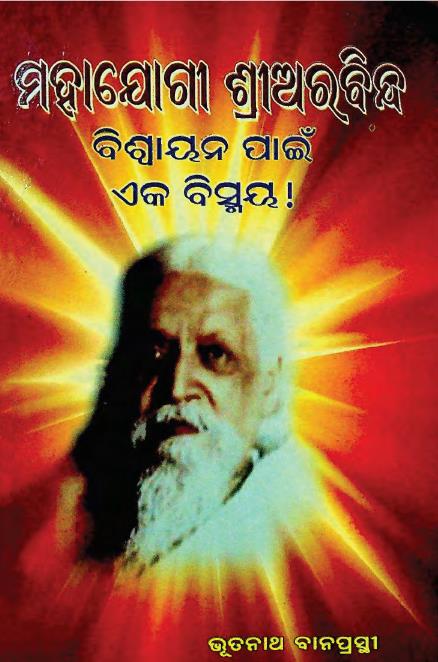In the world of spiritual seekers and reformers, Mahajogi Sri Aurobindo stands as a monumental figure whose life and teachings have left a profound impact on both Indian spirituality and the broader spectrum of human consciousness. In 2011, Bhutanath Banaprasthi meticulously encapsulated the essence of Sri Aurobindo’s life in his biography, presenting an insightful journey from his formative years to his later spiritual activities.
Aurobindo Ghose, later known as Sri Aurobindo, was born on August 15, 1872, in Kolkata, India. Coming from a well-educated family, he was sent to England for his schooling, where he displayed extraordinary intellectual abilities. He attended the prestigious St. Paul’s School in London and subsequently, King’s College, Cambridge, where he excelled in studies and developed an interest in classical literature, philosophy, and languages. This early education would lay the foundation for his future writings and philosophical inquiries.
During his student years in England, Aurobindo formed friendships that would influence his ideological development. He imbibed Western ideals of democracy and freedom, which, coupled with his Indian heritage, would heavily influence his later thoughts on nationalism and self-determination. Aurobindo returned to India in 1893, embracing the nationalist movement against British colonialism. He became involved in revolutionary politics, aligning with leaders and groups striving for India’s independence. His passion for India’s freedom drive became evident as he developed his views on the spiritual and political awakening of the nation.
In the late 1900s, Aurobindo emerged as a prominent political figure, advocating for a united Indian nationalism that transcended regional and religious divisions. His involvement in the initial phase of the nationalist movement was characterized by his editorial role in the publication “Bande Mataram,” where he urged Indians to rise against British rule. However, his political activism led to arrests and confrontations with the British authorities. Aurobindo’s views on nationalism began to evolve; he began to perceive the struggle for independence as part of a larger spiritual awakening for the country.
Following his release from prison in 1909, Aurobindo retreated from politics to explore deeper spiritual practices. It was during this period that he developed his unique system of Yoga, which emphasizes integral evolution of consciousness. His teachings focused on the synthesis of Eastern and Western philosophies, advocating for a spiritual transformation leading to a divine life on earth. Sri Aurobindo’s work in yoga emphasized the importance of individual and collective spiritual evolution, encouraging practitioners to transcend their limitations and connect with a higher state of consciousness.
Aurobindo’s imprisonment in 1908 for his revolutionary activities marked a profound turning point in his life. While incarcerated, he experienced intense spiritual realizations that would shape his future work. The trials he faced in prison reinforced his belief in the necessity of a higher consciousness that transcends physical existence.
In summary, Bhutanath Banaprasthi’s biography of Mahajogi Sri Aurobindo is a comprehensive portrait of a man whose journey through education, politics, spirituality, and imprisonment shaped his unique contributions to modern India. Aurobindo’s legacy continues to inspire countless individuals seeking a deeper understanding of themselves and the world around them, making his life a beacon of hope for those on a quest for spiritual awakening.
Books Info
| Books name | Mahajogi SriAuroindo/ମହାଯୋଗୀ ଶ୍ରୀଅରୋବିନ୍ଦ |
| Author | Bhutanath Banaprasthi |
| No Of pages | 281 |
| Publisher | Nrusingha Charana Jena |
| Publication | 2011 |
| Printed At | Rasad Aad Ejensi |
| Distributor | NA |

